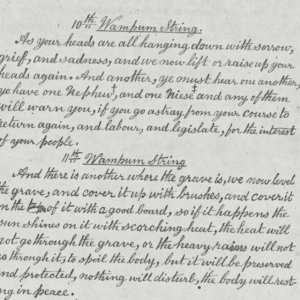Brantford and the Municipality of the County of Brant have been in talks for decades over a possible border adjustment and land swap that would see a large piece of what is now under the jurisdiction of the County come into the city in exchange of other lands now within the city’s holdings.
The proposed land exchange is missing one important element – the actual titleholders, the Onkwehon:we people of the Six Nations of the Grand River Territory.
Although the County has been relatively forthright and accommodating towards Six Nations interests in recognizing the need to involve all stakeholders, the city has not. The fundamental difference between the two political styles became glaringly evident this past Monday and Tuesday.
Monday, at Brant County Council, all present media and public were given a statement from the County explaining the current condition of the talks, from their vantage point. Six Nations Elected Council representatives were at that meeting and participated in the in-camera information session.
But the next day, in stark contrast, after Brantford’s in-camera session where specific details were discussed amongst the city’s legal staff and members of council, only the Expositor and the Brant News were invited into what was supposedly a public meeting. Two Row Times reporter David Langer and a freelance journalist were not only excluded, but were shown the door, which was locked behind them by city hall security.
This is strikingly similar to the way Brantford rammed through two by-laws put in place to base their controversial injunction against Six Nations individuals on. At that time, there were several ongoing protests at construction sites as Six Nations people stood up to the sale and development of land under recognized land claim.
In that case, the legal procedure, which includes an open and advertised public hearing, was skirted when one single reporter, who just happened to be in the building at the time, was commandeered into the room to “fulfill” the city’s required public meeting.
At that time current Mayor Chris Friel was eyeing his political comeback after losing his seat to Mike Hancock and was publicly critical of what he called the “bunker mentality” of the Mike Hancock council. He questioned the injunction happy route that Hancock’s council chose to take rather than to open discussion with Six Nations stakeholders. He also questioned how the by-laws were rushed through without public discussion or input.
But something has changed since retaking the Mayors office. Now, it is his own council’s “bunker mentality” that is selecting which media can and cannot be admitted to a public meeting. But beyond that, even if he chooses not to recognize certain media, these two individuals should have been allowed admittance as members of the public, and were not.
The land in question is under a recognized and accepted land claim, which by rights, should be resolved before anything that may negatively impact Six Nations – like for instance a new industrial park or housing developments on prime farmland within the 7,000 acre Johnson Settlement Tract, without consultation, compensation or accommodation.
Even with provincial facilitator, Paula Dill’s intervention, the boundary talks broke down when both the city and the county could not be drawn out of their respective trenches. The County maintains that the city’s boundary trade proposal is unfair, as Brantford would receive more than it would give up in the process. No future talks have been scheduled, but if they ever start up again, Six Nations stakeholders must be a participating part of those discussions and there must be some form of consultation process applied.







How does the Mayor of the City of Brantford get away with this ???
http://pentortoise.com/news/secret-brantford-boundary-talks-in-hotel/